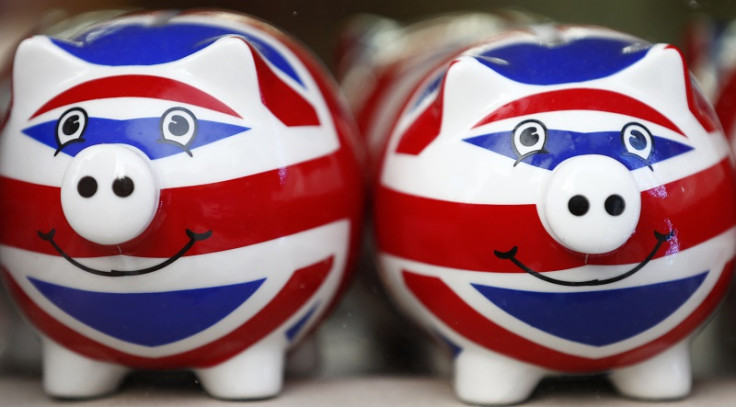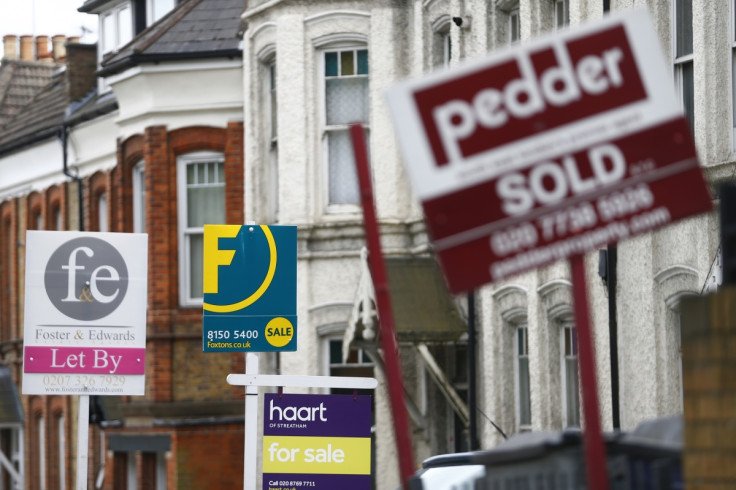UK Interest Rate Hike to Double Households in Debt and Create 'Mortgage Prisoners', says Thinktank

The Resolution Foundation predicts that even the smallest of UK interest rate rises have the potential to double the number of households facing debt problems and create 'mortgage prisoners'.
The thinktank said in a report that even if the Bank of England (BoE) raised rates, from the record low of 0.5% by a quarter of a percent, then by 2018, some 1.1 million households could be in "debt peril".
This compares to only with 600,000 households that are spending more than half of their post-tax income on repaying debt.
"To date, the debt fall-out experienced by UK households since 2008 has been relatively muted. Repayment problems have spiked, but they haven't reached the levels predicted by many at the start of the crisis," said the Resolution Foundation in the report.
"But unemployment, underemployment, falling earnings and cuts in state support have meant that many have found themselves unable to take advantage of the low interest rate environment to pay down their debt in any significant way."
Mortgage Prisoners
Meanwhile, the thinktank warned that the new phenomenon of 'mortgage prisoners' - existing borrowers who struggle to refinance because they do not comply with today's more stringent lending criteria – will develop in the face of a soaring number of homeowners and a rise in rates.

"Even in today's environment of ultra-low borrowing costs, nearly one-in-five home owners say they have difficulty paying for their mortgage, up from one-in-ten in 2005 and only a little lower than the peak of one-in-four during the housing crisis of 1991 when the base rate stood at 13.9%," said the thinktank.
"Our loose proxy identifies two-in-five mortgagors as being potential prisoners, with around 800,000 finding that their potential prisoner status risks compounding an already precarious affordability position.
"That is, of the 2.3 million mortgagors that our modelling suggests will be 'highly geared' by 2018, one-in-three display some form of prisoner characteristic. For some, prisoner status will reflect decisions by lenders to withdraw access to certain types of mortgage products – high loan-to-value (LTV) or interest only for instance. But others might find themselves trapped by the introduction of affordability criteria in the newly-implemented Mortgage Market Review (MMR)."
When Will Rates Rise?
The quarterly ITEM Club report for summer 2014, by business services giant Ernst & Young (EY), predicts that the BoE will hike interest rates sooner, rather than later, despite the UK economic recovery being the strongest of any G7 state.
EY expects the UK economy to grow by 3.1% in 2014 and by 2.5% in 2015. And it said a healthy labour market – which has seen employment hit record-highs – is putting the economy in a "sweet spot".
BoE governor Mark Carney said recently that a rise in interest rates may come sooner than expected too and will jolt markets, as he thinks market participants were not reacting to improving economic data and were becoming complacent about low rates.
Is the Housing Market Being Curbed?
Mortgage approvals for home purchases in the UK rose in June, ending a four month period of decline, showing that more people have been granted big loans to buy a house.
According to the British Bankers' Association (BBA), Britain signed off on 68,121 mortgage approvals last month, up from May's 65,394.
However, this is still below the six month average of 73,996, as lenders have started to ease their mortgage activity as regulators pondered tightening the market over household debt concerns because house prices are spiralling.
Officials are worried that higher house prices coupled with low interest rates will mean people taking on larger mortgage debt than they can afford to repay when the BoE eventually moves to hike rates.
The average price of a UK home hit £262,000 in May 2014 after rising 10.5% across the year, the fastest pace of growth in four years.
© Copyright IBTimes 2025. All rights reserved.






















